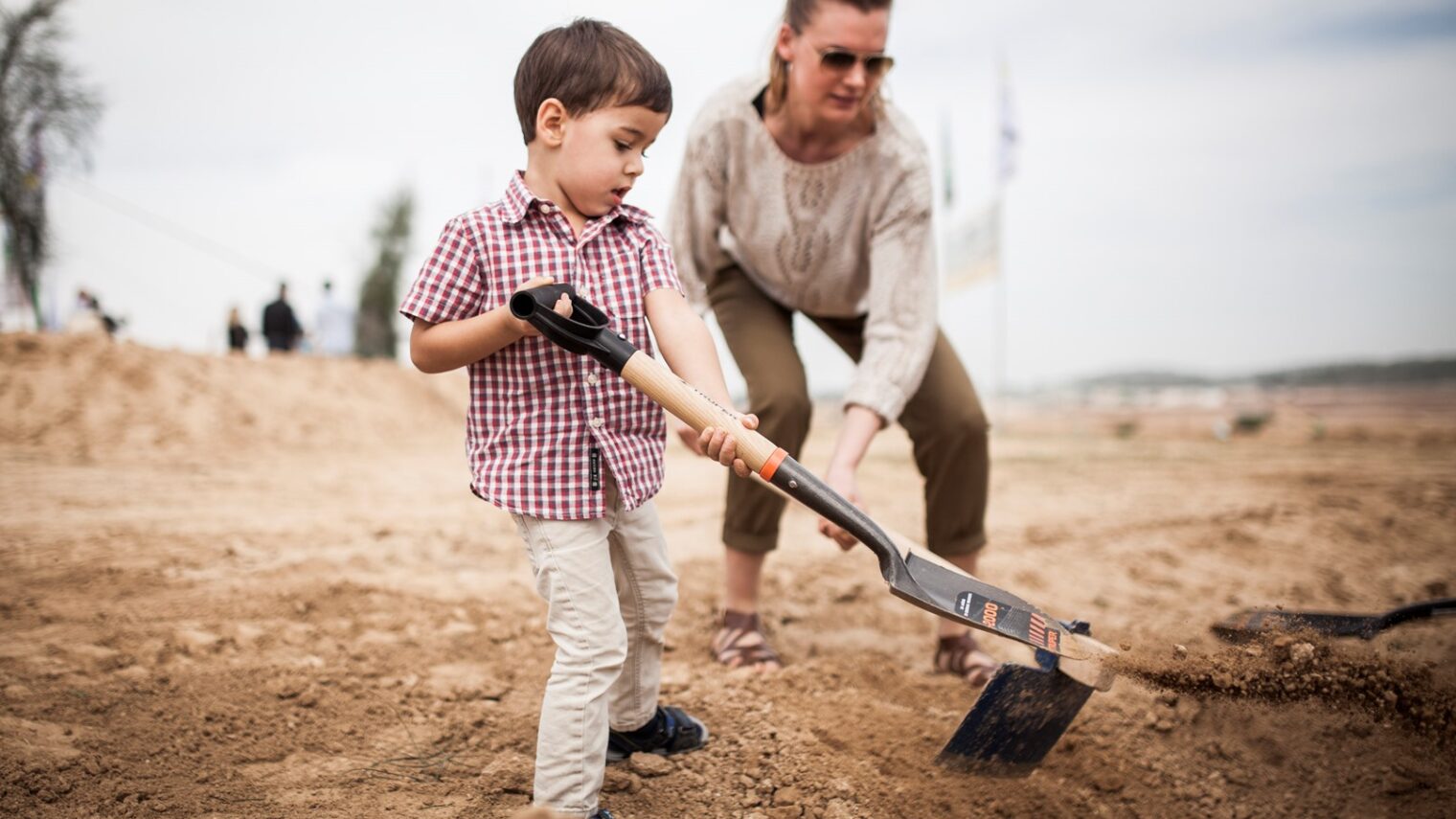The Israeli Ministry for the Development of the Negev and Galilee did not yet exist in 1998 when four childhood friends from Petah Tikva finished the army and decided to dedicate themselves to building up those southern and northern periphery areas of Israel.
With the enthusiastic support of the Ministry of Infrastructure, the friends broke ground in April 1999 for Sansana, the first new community in the Negev in more than 20 years. They moved in, studied the challenges of local life, and identified officials and philanthropists who could help them overcome those challenges.
“In 2002 we established our organization, the OR Movement, as a platform to do much more,” says Ofir Fisher, now 40.
Or means “light” in Hebrew. The nonprofit sees its mission as lighting up the darkness – the underdevelopment — of the Negev and Galilee. Although these regions comprise three-quarters of Israel’s land mass, only one-quarter of approximately 8 million Israelis choose to live in them. The Negev, four times larger than the Galilee, is especially sparse in terms of habitation.
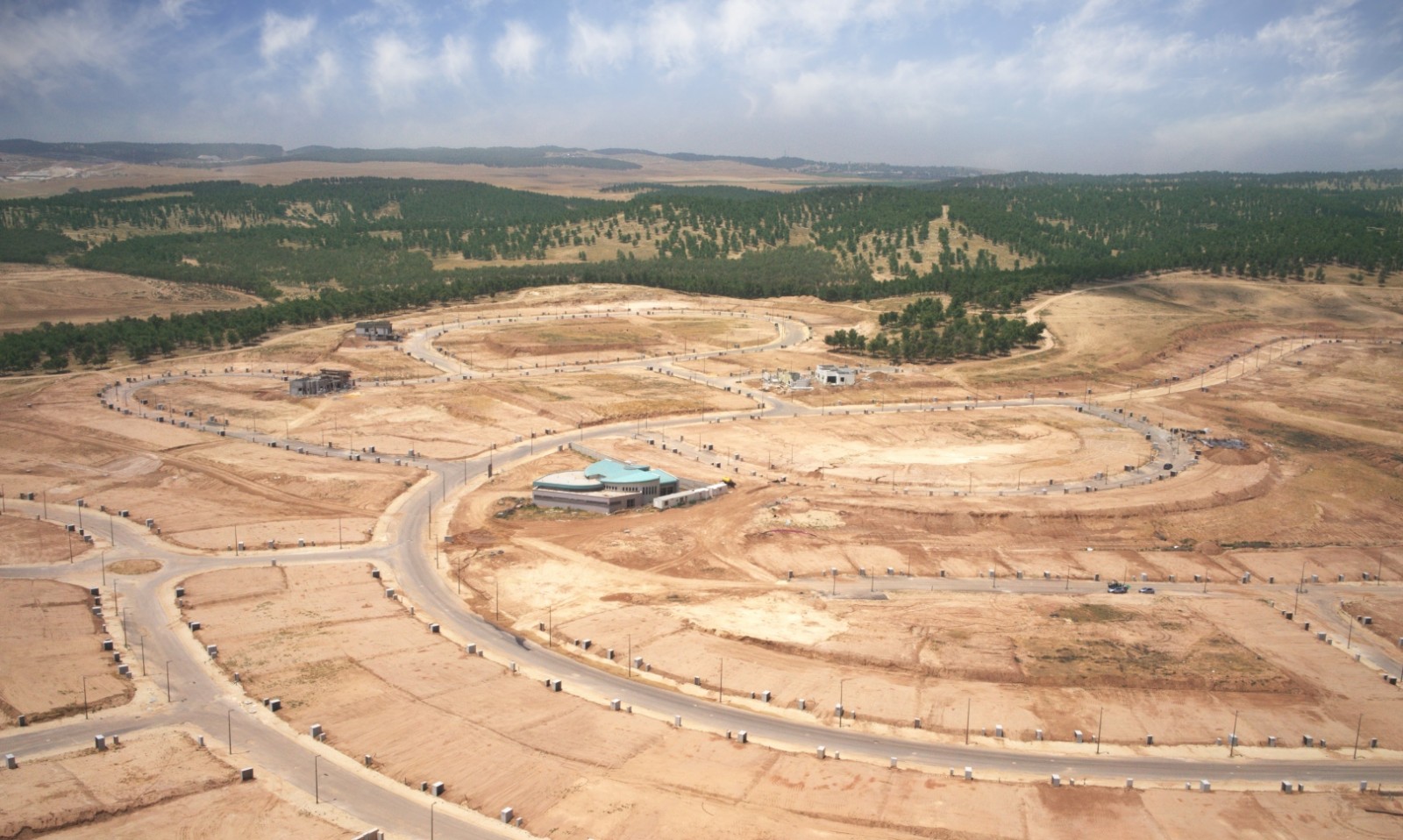
Since founding nine new communities (mainly in the Negev) and revitalizing 64 stagnant communities (mainly in the Galilee), the OR Movement has inspired 32,000 Israelis to relocate.
By the time of the state’s centennial in 2048, the OR Movement aims to have 40 percent of an estimated 16 million Israelis (double today’s population) residing in the two regions.
“After Sansana was established, we got approached by families and groups of families who wanted our help establishing communities, and from mayors of regional councils wanting us to work with them,” Fisher tells ISRAEL21c. “We saw a whole wave of interest and we rode it.”
As people move in, the job picture improves. Between 2008 and 2010, 130 new enterprises opened in the Negev, including branches of multinational companies. Tourism and employment have further burgeoned as Beersheva, the unofficial capital of the Negev, is transforming into a cyber hub. In the Galilee, improved public transport and a growing number of high-tech parks and international R&D centers are attracting more residents.
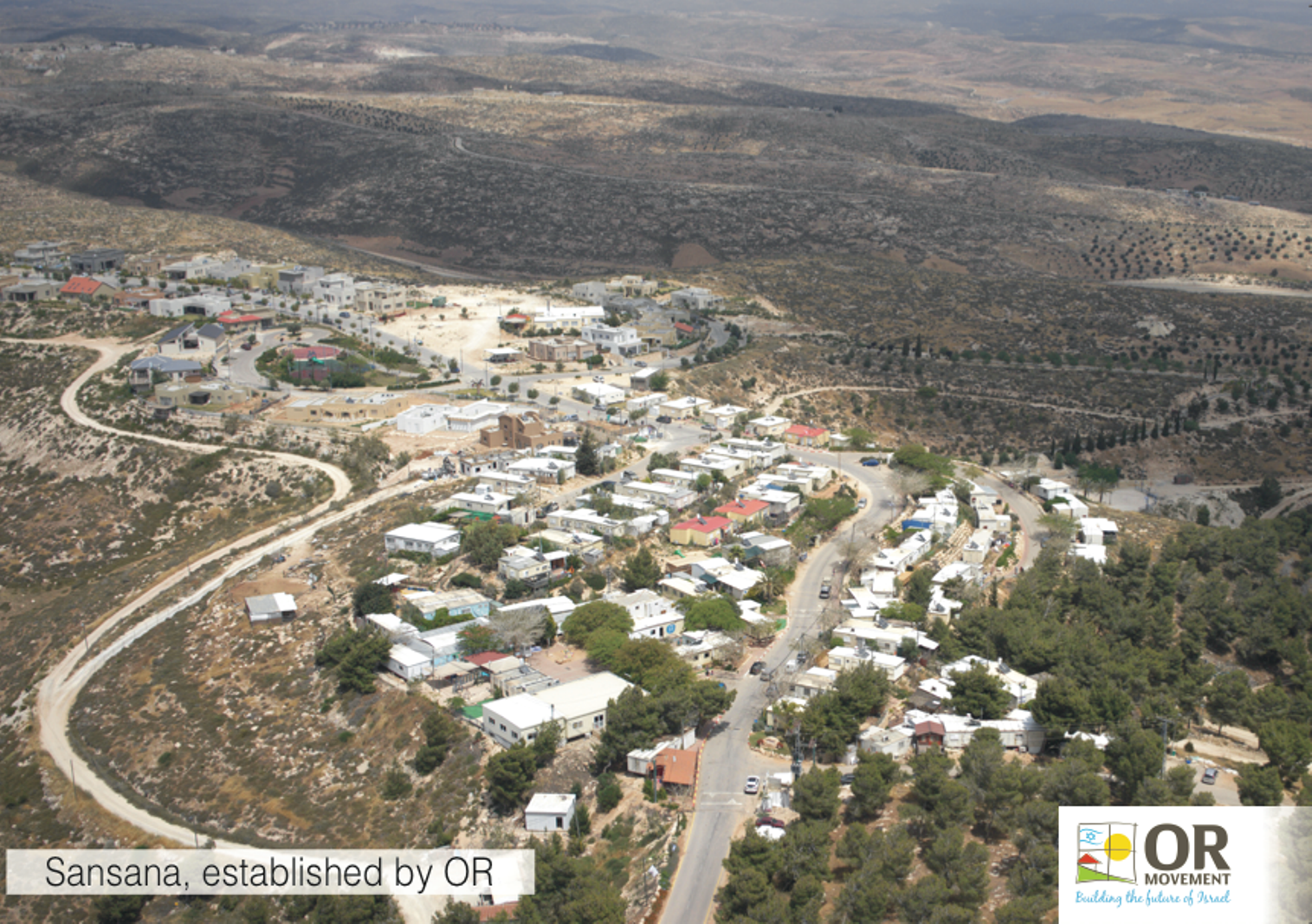
The OR Movement created a course at the Interdisciplinary Center (IDC) in Herzliya in which students devise two business plans each semester for companies interested in expanding to the Negev and Galilee.
Its Information Centers — operated in partnership with the Ministry for the Development of the Negev and Galilee, the Jewish National Fund and the Negev Development Authority — provide all the details and handholding people need when considering a move north or south: housing, employment and entrepreneurship, education, culture, tourism, sports, health, personal security, community services, infrastructure and benefits.
“About 40,000 families have come to us for information about relocating,” says Fisher, the OR Movement’s vice president for development. “We have more than 6,000 families that want to move now, but there aren’t enough places for them.”
“What we’ve done can be duplicated and implemented in Africa, Asia and South America.”
Fisher now lives in the Old City of Beersheva, which the OR Movement targeted in 2007 for a makeover into a magnet for youth-oriented culture and nightlife, a project that got three years of funding from the Ness Fund of New Jersey and other supporters.
“In the last year, we’re shifting more from rural to urban centers such as Beersheva, Arad, Yeruham, Dimona, Safed and Kiryat Shmona,” says Fisher.
The OR Movement has gotten inquiries from people in other countries, including a consul general from an African country who came to tour its projects, says Fisher.
“What we’ve done can be duplicated and implemented in Africa, Asia and South America. We are therefore developing our models to the next level — perhaps as a course — so that people anywhere can learn what to do step by step.”
Noah Initiative
The OR Movement’s success – it has won prizes including the Prime Minister’s Award for Innovation and Initiatives — has encouraged other ideologues and philanthropists to work on populating the Negev.
“There is a huge beehive of activities there, each working on a specific area or population,” says Fisher.
The national and regional governments and organizations such as the Jewish National Fund-Keren Kayemeth LeIsrael are happy to partner with these grassroots efforts.
The Ayalim Assocation, for example, builds villages in neglected Negev and Galilee towns near colleges and universities. Students live there cheaply and receive free tuition in return for community volunteering.
One of the newest Negev ventures is the Noah Initiative founded by Ben Topor, 28, a partner at Cukierman Investment House who appears on the Forbes list of 30 remarkable Israelis under 30 for his leadership in the clean-tech sector.
Topor is bringing in strategic partners to help Cukierman establish an incubator in the town of Ofakim for alternative energy, water and agriculture technologies.
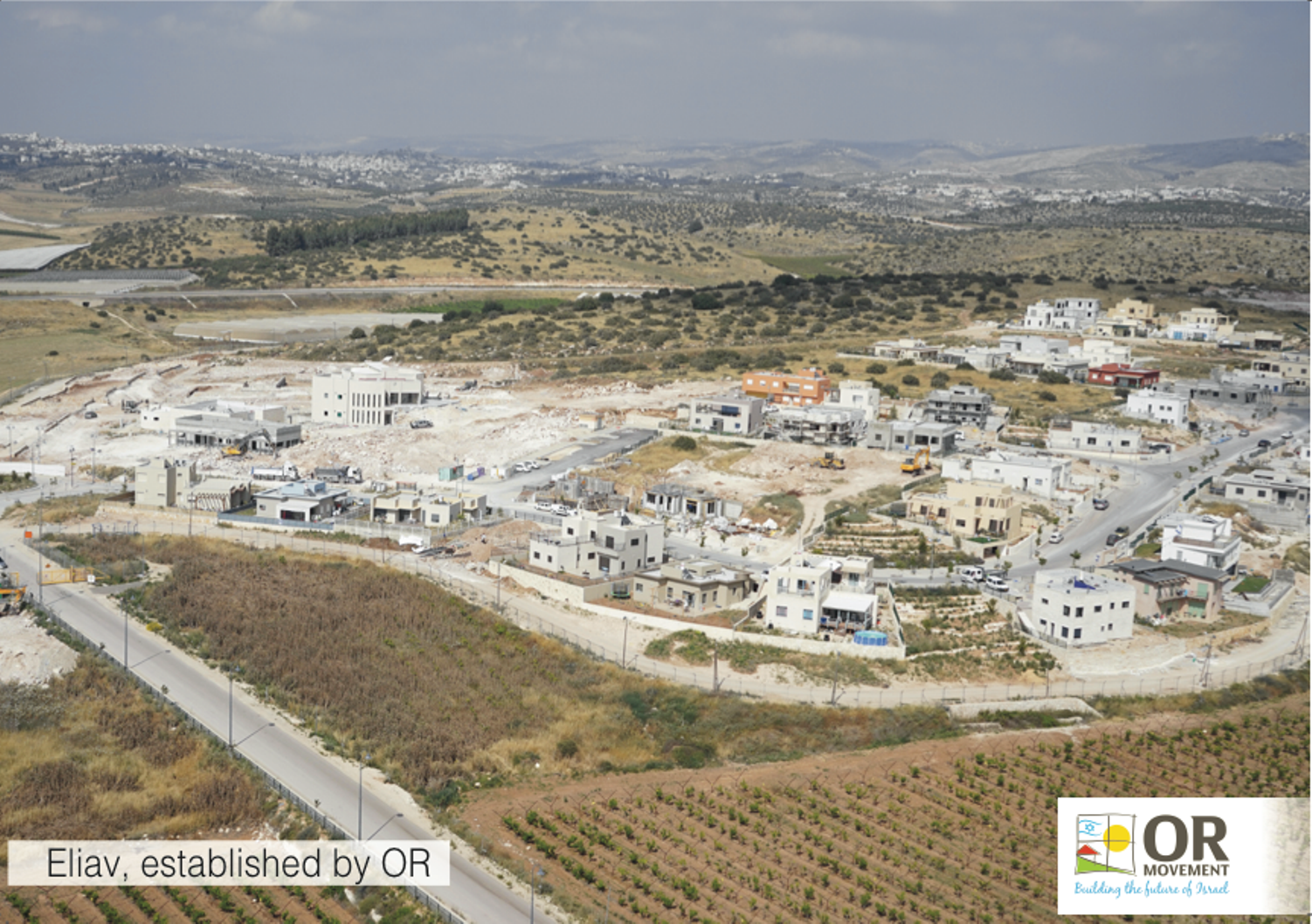
“Ofakim is a good platform to try new green technologies, especially precision agriculture and growing algae for energy. Our vision is to turn Ofakim into a leading place worldwide for green technologies.”
Ofakim (Horizons), a development town of about 25,000 people 20 kilometers west of Beersheva, came to Topor’s attention after Israel’s housing protests in 2011 got him thinking of solutions for young adults.
“I was an economics student at Tel Aviv University and wrote a paper for an ideas competition on how building new cities can drive economic growth,” he tells ISRAEL21c. “I approached people to pitch the idea of a movement that would implement what I suggested in the paper. We founded the Noah Initiative, whose mission initially was to build a new city for young adults in a periphery area to provide affordable housing and to develop the country economically.”
Why Noah? “We see the biblical Noah helping humanity by bringing creatures two by two to move to a new place, and in Hebrew noah means ‘comfortable.’ We want to work hard but live comfortably,” says Topor.
When they began scouting locations, they learned that Ofakim was getting a new train station enabling a fast commute to the Tel Aviv area. The municipality found them a plot of land alongside the station, and the Noah Initiative started meeting with government officials, lawyers and real-estate companies to plan housing, employment, education and social entrepreneurship.
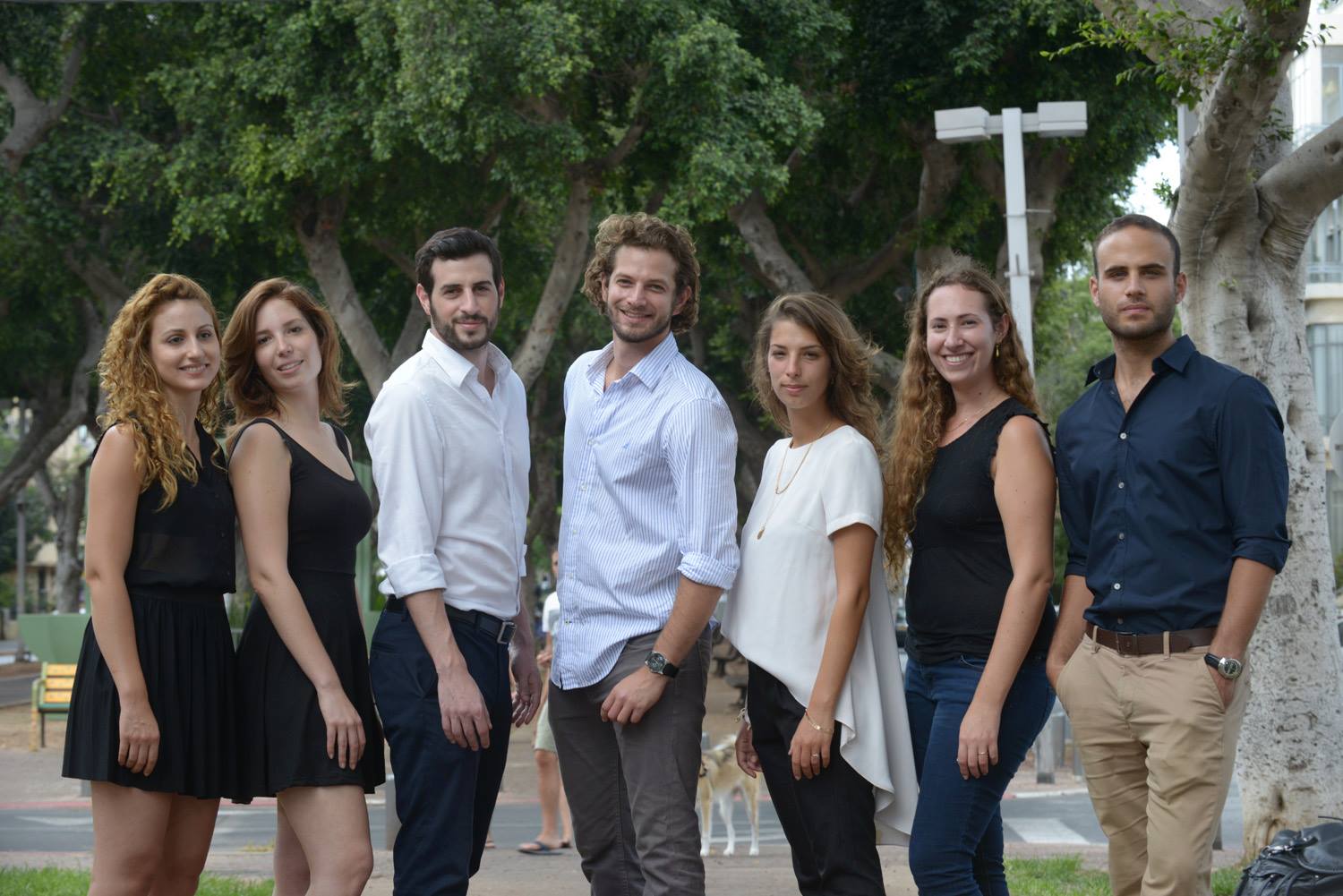
About 20 volunteers are involved in planning the future Noah neighborhood, to encompass 4,000 young adults in 1,100 privately funded housing units built to green standards with smart-city technologies.
The Housing Ministry approved the plan in March, and Topor expects construction to begin next year. The Ness Fund is providing funding and consultation.
Topor and his team have already identified other Israeli towns in which to build residential projects for young adults.
“What we are doing here can be seen as a generic plan for driving economic development in rural areas, and our organizational structure could be implemented in other places where young adults are suffering from high costs of housing,” Topor says.
“We can be a role model for other countries, even in Europe and America. We explored the idea with a German partner that’s involved in Africa, perhaps to form a new organization to implement such projects worldwide. We think there’s great potential there.”
For more information on the OR Movement, click here.
For more information on Ayalim, click here.
For more information on the Noah Initiative, click here.




